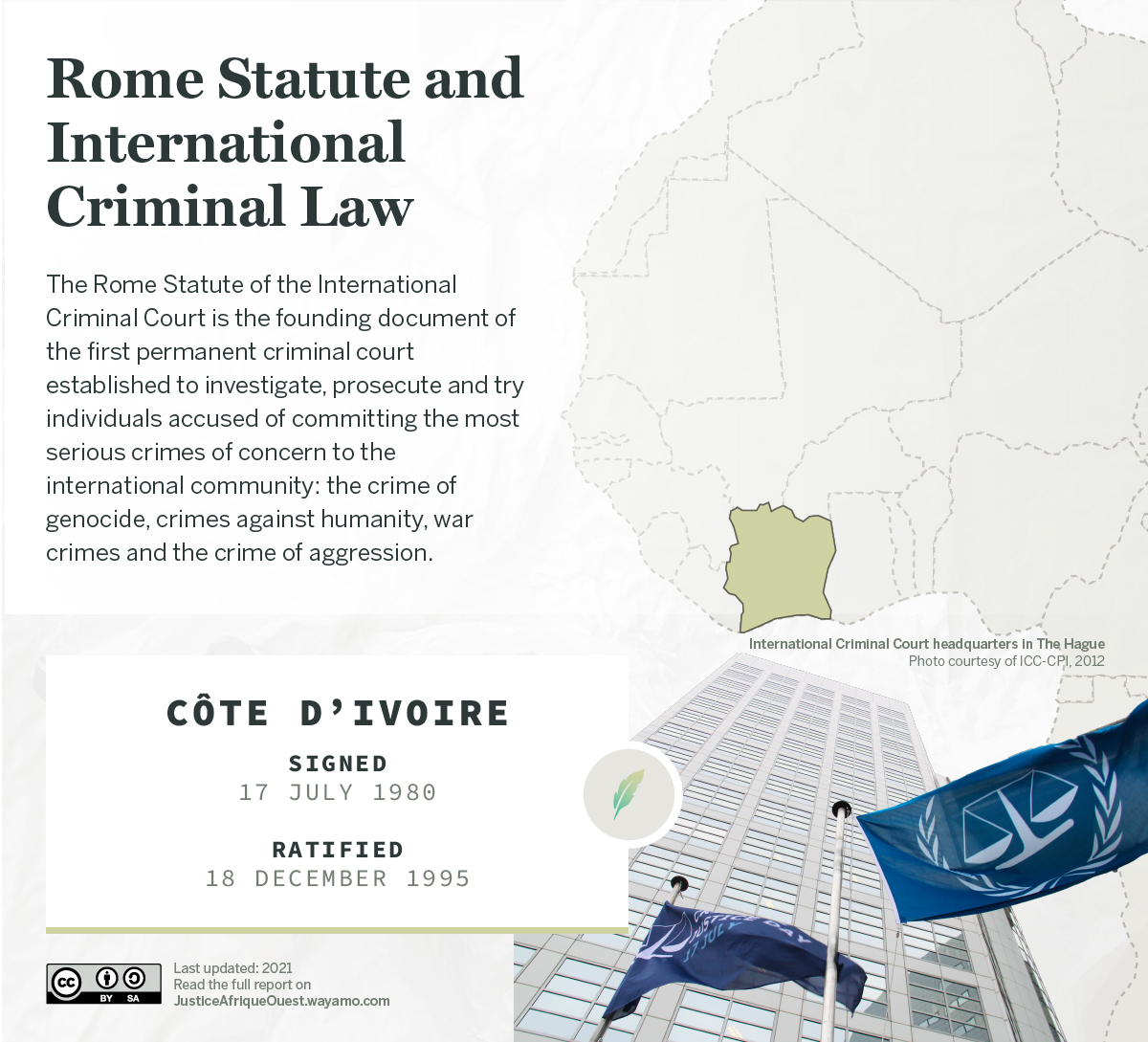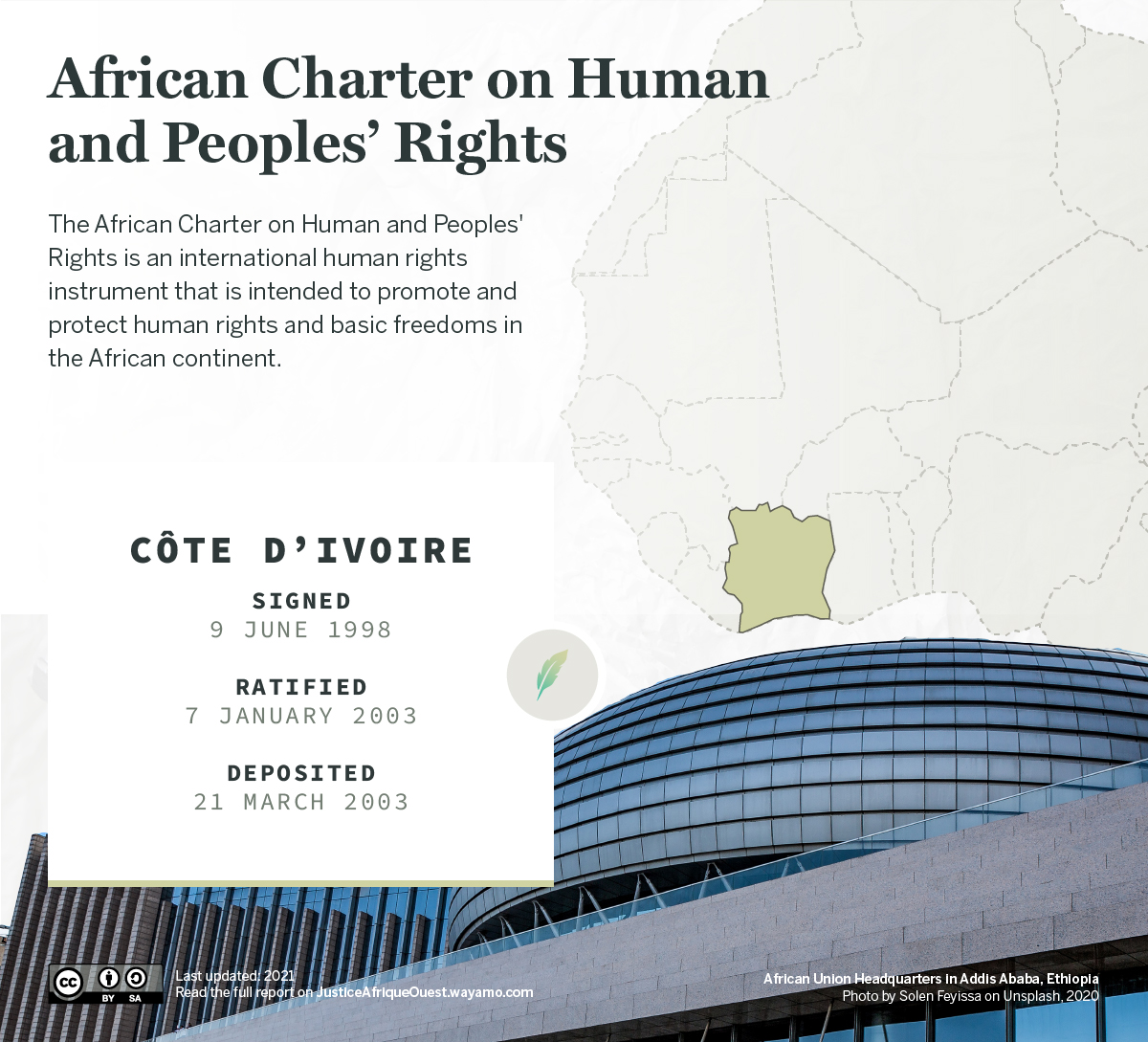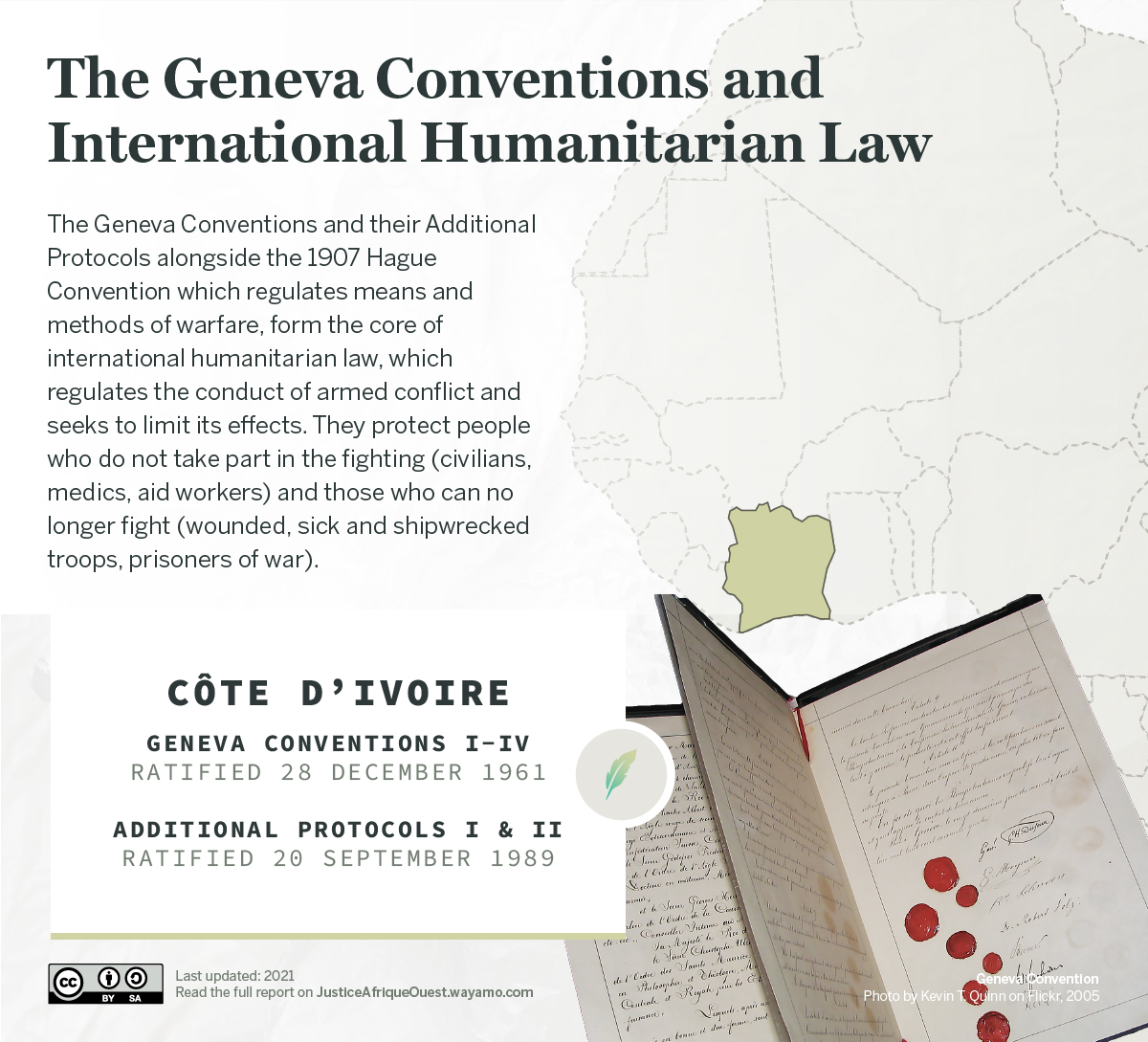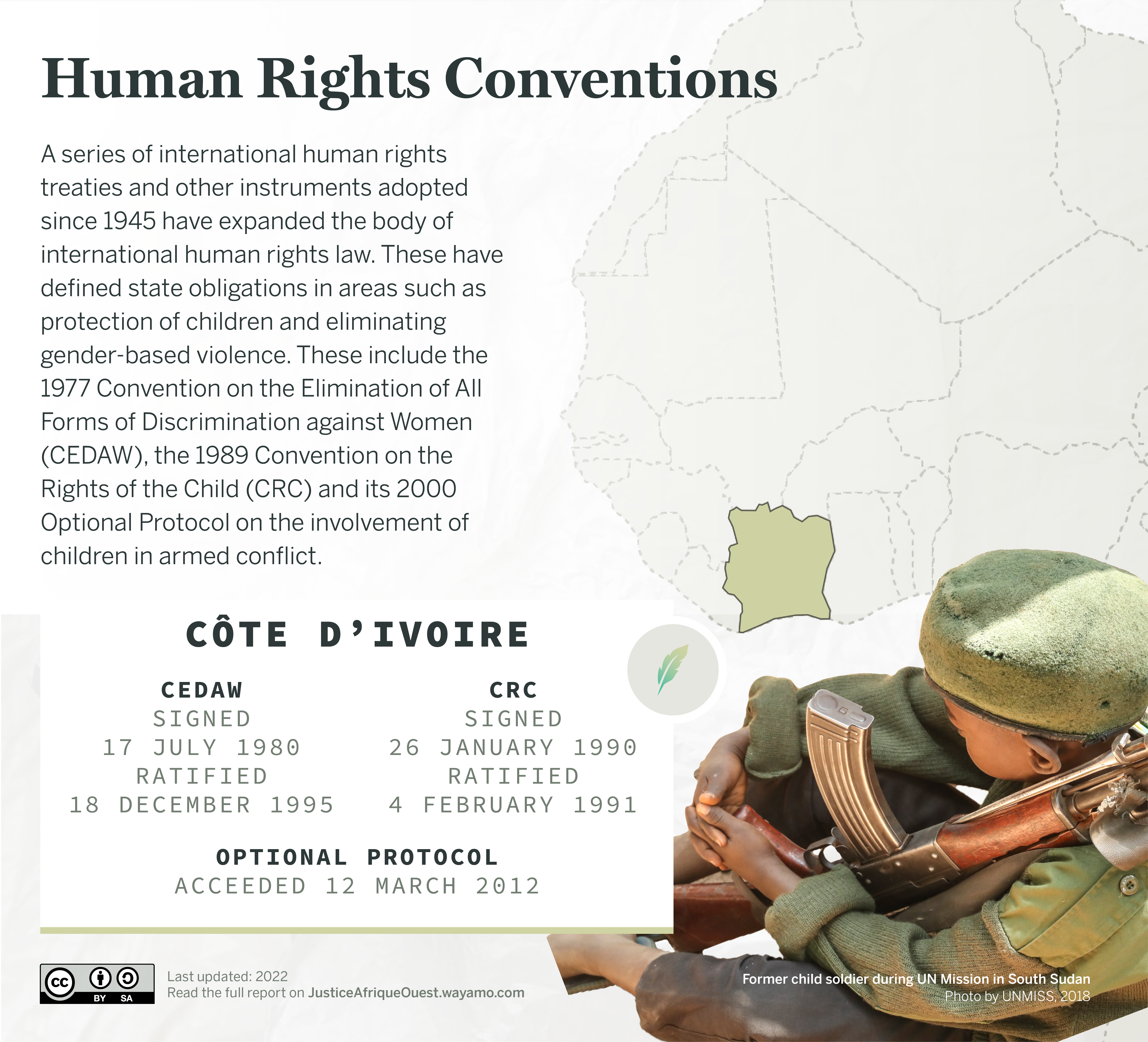President Ouattara Inaugurated
President Ouattara vows to end impunity for the worst crimes.
Establishement of Cellule Spêciale d’Enquête relative à la crise post-électorale
Dialogue, Truth, and Reconciliation Commission
CDVR is launched with a mandate to build reconciliation and forge unity.
Cellule Spêciale d’Enquête et d’Instruction (CSEI)
CSEI replaces CSE. Earlier in the month, Ouattara announced the Special Cell was no longer needed. Under pressure from national and international actors, the government backtracked and instead extended the Cell’s mandate to create the CSEI.
Trial of Simone Gbagbo + 82 Opens
Simone Gbagbo and 82 co-accused opens at the Court of Assizes in Abidjan. The trial concerned both alleged militants and militiamen who supported Gbagbo, as well as members of Laurent Gbagbo’s last government. It dealt with crimes against the state (“atteine à la surete de l’etat”) and not conduct amounting to international crimes. Human rights groups criticised the proceedings, contending defense attorneys did not have access to their clients' files, unreliable witnesses, lack of witness protection and incomplete investigations (OIDH 2015).
Trials in Connection with National Commission of Inquiry
20 individuals were reportedly prosecuted in connection with the CNE’s report. The investigations include crimes committed by all sides and led to the indictment of eight pro-Ouattara militaries (ICTJ:2016). The indicted supporters of Ouattara remained in government posts and, as of 2020, had not faced trial.
Trials in the Military Justice System
Military prosecutors were forced to discontinue the prosecution of two pro-Gbagbo commanders for their role in the indiscriminate shelling of residential areas of Abobo in March 2011, after failing to produce sufficient evidence. The military justice system has tried a handful of cases involving pro-Gbagbo officers and soldiers implicated in killing civilians during the crisis, but has been criticized by international and local human rights groups for the lack of rigor with which it is pursuing these cases.
Ruling Given in Trial of Simone Gbagbo + 82 Opens
The verdicts varied. Simone Gbagbo was given 20 years in prison, twice the amount requested by the prosecutor. Civil society observers found the verdicts severe given gaps in investigation and weakness of evidence. Charges of war crimes were added to the trial, in light of ICC arrest warrant issue against Simone Gbagbo.
Creation of CONARIV Reparations Commission
CONARIV was created by presidential ordinance to carry out the victims’ reparation process alongside the PNCS (programme National de Cohésion Sociale). CONARIV’s mandate is to produce a consolidated single list of all victims of the Ivorian crisis and supervise the implementation of the reparations program.
CSEI Expanded to include Terrorism
Government communiqué announced the decision of the Council of Ministers to adopt a decree expanding the mandate of the CSEI to include terrorism.
Côte d’Ivoire adopts a new Constitution
UN Independent Expert Report on Status of Trials
The report found, as of December 2016, 17 cases linked to the post-electoral crisis were still pending before the courts, while 31 out of 66 cases had already been tried, 29 had been brought before the Indictment Division, and six were before the Court of Appeal.
Trial of General Dogbo Blé
Sentenced to 18 months in prison for illegal arrests and detentions, assassination, forced disappearances and removal of bodies.
Trial of Genernal Assoa Adou
Sentenced to four years in prison and a 200,000CFA fine for disruption to the peace, under article 169 of the criminal court. The court added this charge, which did not exist in the original charges.
March 18 2017 & July 2017
Simone Gbagbo Acquitted & Acquittal Overturned
In March 2017, Simone Gbagbo was acquittal and on July 2017 that decision was overturned. Fair trial concerns were raised; notably, her lawyers suspended their participation when the president of the court refused to call witnesses considered crucial to her defense, namely five senior public officials, one of them the president of the National Assembly.
Soro Guillaume Trial in Absentia
Former rebel leader Soro Guillaume was tried in absentia and sentenced to 20 years in prison and deprivation of civil rights for embezzlement of public funds and money laundering. This was the first trial and conviction of an alleged perpetrator of grave crimes from Ouattara’s supporters. The charges against him were not related to the conflict.








